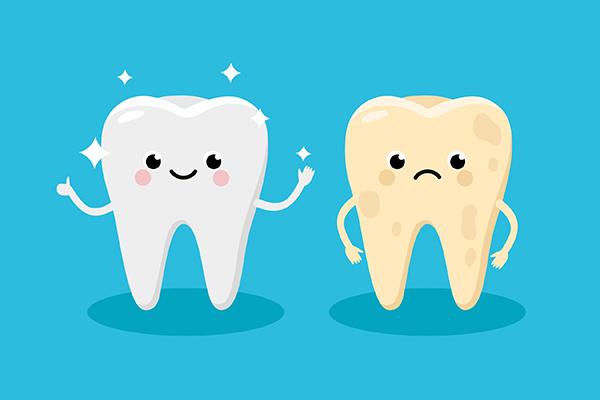Tooth Pain Causes and Treatments

Tooth pain refers to aches, soreness or pain that comes from or around a tooth. It often leads to issues like dull or sharp pain and increased sensitivity to hot and cold foods. Toothaches can be caused by a number of things. A diagnosis performed by a dentist is needed to get to the bottom of the problem and treat it. Dentists typically do this by performing a dental exam, going over the patient’s medical history and conducting tests like X-rays.
Common tooth pain causes and their treatments
Here are some common causes of tooth pain and how the dentist goes about treating them.
1. Gum disease
Gum disease is an infection of the gums. It is the result of plaque making its way beneath a person’s gumline. The bacteria there irritate the soft tissues of the gums, prompting the immune system to dispatch antibodies to combat them. As a result, the gums become swollen and red.
When left unaddressed, the infection will begin to eat away at the bone structures that support teeth. The patient experiences tooth pain as this deterioration occurs as well as increased sensitivity to hot and cold foods.
Treatment
The first stage of gum disease is called gingivitis and it can be combated by improving oral hygiene and getting teeth cleaned by a dentist. The patient’s condition can typically be reversed with this. Things are a bit more complicated with the more advanced stages of gum disease. Treatments like bone grafts, gum grafts and the use of dental restorations might be needed.
2. Tooth decay
Tooth decay refers to the erosion of teeth enamel. It is often characterized by the formation of cavities. These are tiny holes that develop on teeth surfaces as acids created by oral bacteria eat away at them. These acids slowly weaken the enamel, eventually breaking it down.
When left untreated, a cavity will continue to expand until the entire tooth is compromised. Cavities lead to toothaches and, eventually, an infection.
Treatment
How far a cavity has progressed determines how a dentist approaches it. A small cavity can be fixed by closing it up with a filling, while a bigger one might require a crown to protect the tooth. If the cavity has made its way to the pulp chamber (where the tooth’s nerve and soft tissues are enclosed), a root canal might be needed to stop the tooth pain and save a tooth.
3. Bruxism
Bruxism is the medical term for teeth grinding. People with this condition tend to grind their teeth during sleep. Most of them are not even aware they have this habit. However, teeth grinding leads to serious damage to teeth over time. It wears off the enamel as the person’s teeth are filed down over time. As a result, the patient experiences toothaches as multiple teeth become damaged due to their habit.
Treatment
Teeth grinding is a bit trickier to deal with than most dental issues, but oral appliances can be used to reduce the damage done. Bruxism is often linked to stress or emotional issues and these have to be addressed to stop the habit.
Get the treatment you need
Gum disease, tooth decay and bruxism are all common causes of toothache. Your dentist can help relieve your pain no matter what is causing it. Stop by your dentist’s office if you are dealing with tooth pain. Let the staff provide the necessary treatment.
Request an appointment here: https://www.diamondheaddentalcare.com or call Diamond Head Dental Care at (808) 450-2101 for an appointment in our Honolulu office.
Check out what others are saying about our services on Yelp: Read our Yelp reviews.
Recent Posts
Everyone needs professional care to maintain healthy teeth and gums. These days, it is much easier to find a dentist who covers the essentials and offers additional treatments for complete care. By understanding the type of care a dentist can provide and how to find the right office, patients can enjoy better oral health.Many dentists…
Many people need to find a dentist on the weekend. Whether work or school schedules prevent a visit during normal business hours on the weekdays or a dental emergency occurs, there are often occasions where the weekend is the only time available to see the dentist. Keep reading for tips on how to locate a…
Regular dental checkups are vital to keeping your teeth and gums healthy. You should visit your family dentist at least once every six months. This includes both adults and children alike. Routine dental appointments are essential for good oral health and they offer many important benefits.Tartar removal is an important step in dental appointments that…
Emergency dentistry can provide immediate relief from the discomfort that you may be experiencing. While waiting for your turn, you can do a few things to help your situation. Knowing what to do can prepare your teeth and gums for urgent treatment.If a patient wants to know what they can do while waiting to see…


